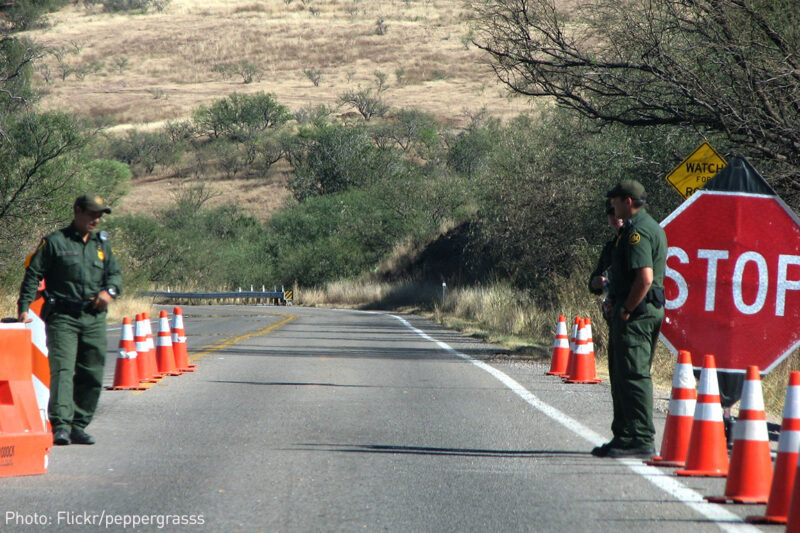When Traffic Cops Become Part of Immigration Enforcement, Civil Rights Violations Are Almost Inevitable


Whether they like it or not, state and local police do not have the authority to enforce immigration law. And that’s a good thing, because when cops try to act like Border Patrol agents, civil rights violations are almost inevitable. An ever expanding number of lawsuits across the country bear that out.
This issue gained national notoriety in 2007 in Maricopa County, Arizona, where Sheriff Joe Arpaio instructed police officers to conduct immigration checks during traffic stops, specifically targeting Latinos. The ACLU sued, and Arpaio’s department was found liable for widespread rights violations.
Even so, Arizona has continued to defend its infamous “show me your papers” law, SB 1070, which requires officers to conduct immigration checks after they stop people. The ACLU warned at the time SB 1070 was passed, in 2010, that it was a recipe for racial profiling and would result in unlawful, prolonged police stops for the purpose of investigating immigration status.
Now an ACLU investigation based on Tucson Police Department stop records has revealed that officers enforcing SB 1070 are routinely extending the duration of traffic stops in order to investigate individuals’ immigration status and to wait for Border Patrol to arrive on the scene. No surprise, Latinos make up the vast majority of those stopped.
The ACLU’s investigation found constitutional problems in more than 75 percent of the stops reviewed in which Border Patrol responded to the scene of a stop. The majority were basic traffic stops, many involving minor infractions that were drawn out to wait for Border Patrol to show up. In some cases, families with young children were detained roadside in order for the parents to be handed over to Border Patrol agents.
One mother driving her two children to school was stopped and found to have a suspended license, for which she could have been cited and released. Instead, the officer detained her until Border Patrol arrived to take custody — one hour and 20 minutes after the stop was initiated.
While the Supreme Court recently held in Rodriguez v. United States that a traffic stop extended “seven or eight minutes” past the time required to address the basis for the stop violated the Constitution, Tucson police data shows routine stops lasting anywhere from 15 minutes to three hours before Border Patrol’s arrival. The majority lasted between one to two hours.
In another instance, two individuals stopped for speeding identified themselves as “DREAMers,” immigrants who have grown up in the United States without documentation and consider this country their home. The officer advised them that “they were being detained as they had provided no evidence of being in the US legally” even though that is not a crime and the officer had no legal authority to detain them on that basis. Border Patrol arrived but declined to take either subject into custody — one and a half hours after the stop was initiated.
Many of these records also show Border Patrol’s apparent disregard for DHS’s revised enforcement priorities. Many of the people held for investigation were lawfully present or did not appear in Border Patrol’s database at all. Border Patrol’s role in these stops also flies in the face of the Obama administration’s commitments — made in response to Arizona’s SB 1070 — to limit the involvement of immigration officials in traffic stops by Arizona law enforcement and to protect the civil rights of Arizona residents.
These problems are by no means limited to Arizona: A growing body of evidence shows that the entanglement of cops and immigration officials is a recipe for abuse nationwide, including many northern border counties. These practices also profoundly undermine local communities’ trust in law enforcement, making everyone less safe.
We should not have to wait for more evidence to accumulate for both local police and the federal government to adopt stricter limits on these activities and to implement basic oversight measures. We can and will file more lawsuits to hold law enforcement accountable, but local police should recognize it’s in their own self-interest to steer clear of immigration enforcement.




